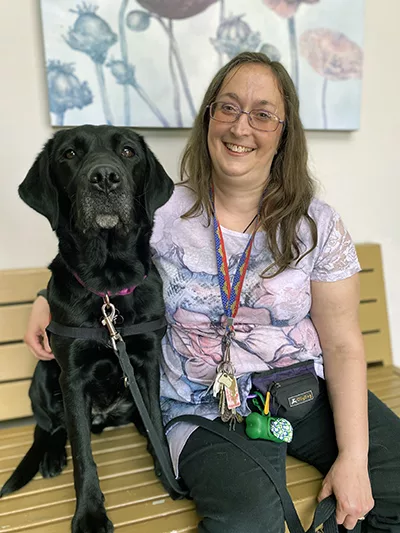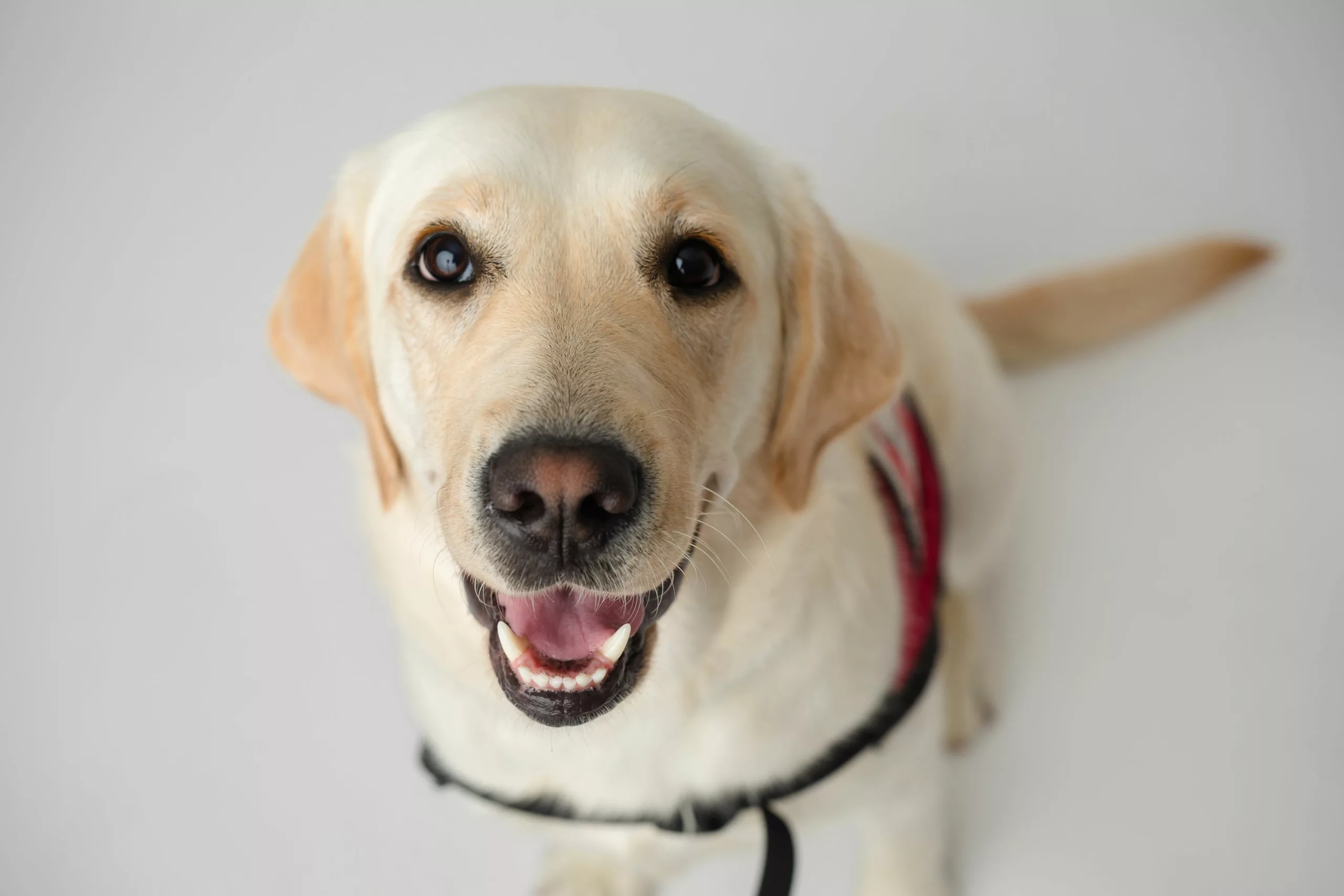“Imagine a really bad charley horse that won’t go away.” That’s how Heidi describes the symptoms she experiences with Dystonia—a movement disorder she was diagnosed with in 2020, but likely had for many years prior. Dystonia is much more severe than a charley horse, though. Heidi explains, “If it’s a real bad episode, it involves kind of everything.” In addition to her leg and foot being affected, her neck muscles are a common target, and her hands might involuntarily ball into fists. She adds, “My tongue will spasm so I can’t make discernible words. Even though I understand what’s happening, I can’t necessarily relay that.”
Heidi lives alone but has a lifeline button attached to her living room wall that, when pressed, can automatically call for help. That’s assuming she’s able to get to the button. She recalls one time, noting, “I was kind of stuck and in really bad pain for a couple of hours before I could manage the button.”
Last year, she was at the point of needing to consider moving into an assisted living facility or having someone live full-time with her. Instead, after a community paramedic recommended Can Do Canines, she decided a furry, four-legged housemate might be a better option.
 We agreed, and soon button-pushing extraordinaire Kora, a 3-year-old black Lab, moved into Heidi’s home and heart. Heidi has been amazed at all of Kora’s skills and admits, “I’ve had to stop myself and learn to let her do the things she can do.” Kora’s to-do list includes retrieving dropped items, tugging Heidi’s walker to her, opening and closing doors and drawers, getting water from the fridge, and of course, pressing Heidi’s lifeline button. That particular job needed some fine-tuning once Kora moved in, as Heidi’s button needs to be pressed for at least two seconds to be activated—more than the usual quick nudge our dogs give buttons. Kora was up to the task, learning to increase the duration of her contact.
We agreed, and soon button-pushing extraordinaire Kora, a 3-year-old black Lab, moved into Heidi’s home and heart. Heidi has been amazed at all of Kora’s skills and admits, “I’ve had to stop myself and learn to let her do the things she can do.” Kora’s to-do list includes retrieving dropped items, tugging Heidi’s walker to her, opening and closing doors and drawers, getting water from the fridge, and of course, pressing Heidi’s lifeline button. That particular job needed some fine-tuning once Kora moved in, as Heidi’s button needs to be pressed for at least two seconds to be activated—more than the usual quick nudge our dogs give buttons. Kora was up to the task, learning to increase the duration of her contact.
Kora also uses her persistent pressing talent to provide deep-pressure therapy for Heidi. Through this focused snuggling, the pair work together to not only alleviate symptoms in the moment, but also hope to reduce the frequency and severity of episodes. Heidi says, “She helps keep that anxiety down and gives me some relief so that I’m not running at the top of my limit.” When Dystonia is flaring, Heidi shares that it’s easy to panic. “Even though I try telling myself ‘Stay calm,’ it’s still scary.” Kora’s calming presence and the “snuggle” cue come in handy, and Heidi says, “That pressure is kind of relaxing in itself,” helping to keep her muscles looser.
Kora knows how to loosen up the mood in a room just as easily with her goofy personality. Heidi describes that when she rubs Kora’s belly, “She just gets really silly and gets this huge smile on her face and begins flopping all over.”
“Words can’t say how appreciative I am,” says Heidi of the gift of Kora. Heidi is able to go out more now and is increasingly relaxed in doing so. She also does not underestimate her extended independence. “The biggest thing is that I’m able to live on my own still.”
It turns out that for Heidi, at least, a Mobility Assist Dog is the best option for wrangling charley-horse-like symptoms.
Thank you to all those who made this partnership possible:
Raiser — Katie Cormier Family
Special Thanks — Stanley Correctional Institution

 A Mind Set on Independence
A Mind Set on Independence




